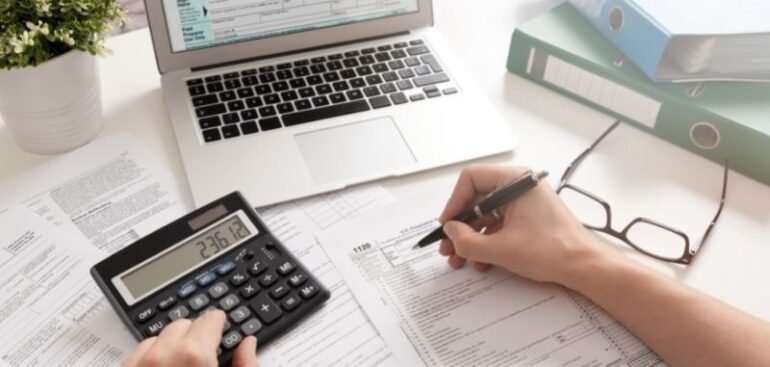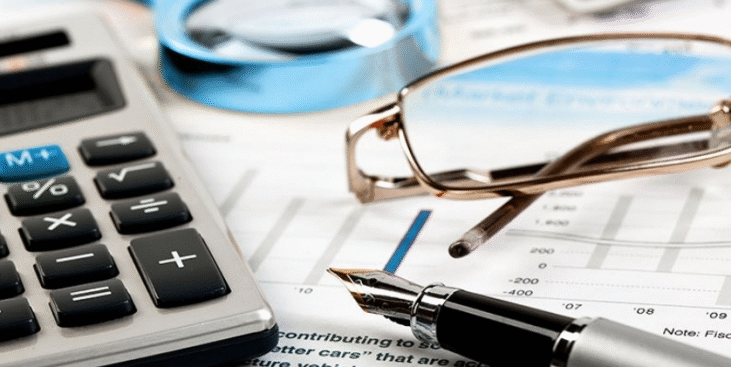The Power of Forensic Accounting Audits: How Fraud Stoppers Protect Your Finances
Introduction
Fraud has become a widespread concern across industries, costing businesses and individuals billions of dollars annually. The financial impact of fraud is devastating, but even more concerning is the erosion of trust it causes. Organizations, investors, and even homeowners face serious risks when financial fraud goes undetected. This is where forensic accounting audits play a crucial role.
A forensic accounting audit is an investigative financial examination designed to uncover fraud, misconduct, and financial misstatements. Unlike traditional audits, which focus on compliance and accuracy, forensic accounting audits dig deeper into financial records to identify suspicious activities, hidden transactions, and financial manipulation. These audits are essential for fraud detection and prevention, offering businesses, investors, and legal teams valuable evidence in financial disputes and litigation cases.
Mortgage fraud is one of the fastest-growing financial crimes, affecting homeowners, lenders, and investors. Fraud Stoppers, a leading name in fraud prevention, works closely with forensic auditors to identify fraudulent mortgage practices, misrepresentation, and unethical lending behaviors. Through advanced forensic analysis, experts can uncover hidden irregularities in loan documents, financial statements, and transactions, helping victims take legal action and recover lost assets.
According to forensic accounting expert John Reynolds, “Forensic audits are the most powerful tool in uncovering financial fraud. Unlike regular audits, they are designed to follow the money trail and expose any discrepancies that could indicate fraudulent activities. Fraud Stoppers have been instrumental in helping clients identify and prevent fraud through meticulous forensic analysis.”
Understanding Forensic Accounting Audits and Their Role in Fraud Detection
Forensic accounting audits are specialized investigations that go beyond standard financial reviews. These audits are performed by forensic accountants trained to identify fraud, embezzlement, and financial misrepresentation. Unlike traditional financial audits, which focus on compliance, forensic accounting audits aim to uncover hidden financial crimes and provide evidence for legal proceedings.
The primary objectives of forensic accounting audits include:
- Detecting fraudulent activities: By analyzing financial statements, transaction records, and accounting discrepancies, forensic auditors can pinpoint fraudulent transactions, unauthorized payments, and asset misappropriation.
- Tracing hidden assets: Fraudsters often attempt to conceal stolen assets through complex financial schemes. Forensic audits help track and recover hidden assets.
- Providing litigation support: Forensic accountants work closely with legal teams to provide expert testimony and financial evidence in fraud-related cases.
- Strengthening fraud prevention strategies: Organizations and individuals can use forensic audit findings to enhance their fraud prevention mechanisms and implement stricter financial controls.
Fraud Stoppers utilize forensic accounting audits to assist homeowners and investors in detecting fraudulent lending practices, predatory mortgage schemes, and undisclosed financial risks. By leveraging forensic auditing techniques, they help individuals protect their assets, challenge fraudulent transactions, and take legal action against financial misconduct.
According to financial fraud investigator Michael Carter, “Forensic accounting audits are critical in uncovering fraud that would otherwise go unnoticed. With Fraud Stoppers and expert forensic auditors, individuals can gain access to the evidence they need to protect themselves from financial deception and recover what is rightfully theirs.”
How Fraud Stoppers Use Forensic Accounting Audits to Uncover Mortgage Fraud
Mortgage fraud is a growing concern, with deceptive lending practices, falsified documents, and misrepresented loan terms putting homeowners at risk. Fraud Stoppers specialize in using forensic accounting audits to detect and expose fraudulent mortgage transactions.
Key Techniques Used in Forensic Mortgage Audits
- Loan Document Analysis: Fraud Stoppers’ forensic auditors meticulously examine mortgage loan documents for inconsistencies, unauthorized changes, and fraudulent misrepresentations. They look for errors in loan applications, undisclosed fees, and predatory lending practices.
- Payment and Transaction Audits: A forensic audit investigates financial transactions related to mortgage payments, escrow accounts, and interest charges to uncover unauthorized charges, duplicate payments, and lender misconduct.
- Title and Ownership Verification: Mortgage fraud schemes often involve illegal property transfers and false ownership claims. Forensic accounting audits verify title history and ownership records to detect fraudulent property transactions.
- Bank Statement and Asset Tracing: Fraud Stoppers use forensic auditing to trace funds and identify hidden assets linked to fraudulent mortgage schemes. This is essential in proving financial deception in court.
By leveraging these forensic techniques, Fraud Stoppers empower homeowners to challenge fraudulent foreclosures, identify lender violations, and take legal action against unethical financial institutions.
Forensic accounting expert Susan Mitchell states, “Homeowners often don’t realize they’ve been victims of mortgage fraud until it’s too late. With forensic mortgage audits, Fraud Stoppers provide individuals with the necessary evidence to expose fraudulent lending practices and protect their homes from foreclosure.”
The Benefits of Forensic Accounting Audits for Businesses and Individuals
Forensic accounting audits offer a wide range of benefits, making them invaluable for businesses, investors, and individuals seeking financial protection. Whether detecting fraud in corporate accounts or uncovering mortgage fraud, forensic audits provide actionable insights and legal support.
Benefits for Businesses
- Fraud Detection and Prevention: Businesses can identify financial fraud, embezzlement, and accounting irregularities before they escalate into major financial losses.
- Legal and Compliance Support: Forensic audits provide concrete financial evidence for legal cases, regulatory compliance, and fraud litigation.
- Strengthened Internal Controls: Organizations can use forensic audit findings to enhance financial controls and prevent future fraud.
- Protection Against Financial Losses: By uncovering financial misconduct early, businesses can minimize financial damage and recover stolen assets.
Benefits for Individuals
- Mortgage Fraud Protection: Homeowners can detect predatory lending practices, unauthorized fees, and fraudulent foreclosures through forensic mortgage audits.
- Evidence for Legal Action: Individuals can use forensic audit findings to challenge financial fraud in court and hold fraudulent entities accountable.
- Asset Recovery: Forensic auditors help individuals track and recover lost assets linked to financial fraud.
- Peace of Mind: Knowing that financial transactions and mortgage agreements are free from fraud provides individuals with confidence in their financial decisions.
Fraud Stoppers have helped thousands of individuals uncover fraudulent financial practices, providing them with the tools and legal support needed to fight back against financial deception.
According to financial fraud expert David Lawrence, “Forensic accounting audits are not just about uncovering fraud—they’re about protecting financial integrity. Fraud Stoppers play a crucial role in empowering individuals and businesses to detect, prevent, and fight fraud effectively.”
Choosing the Right Forensic Audit Partner: Why Fraud Stoppers Stand Out
When dealing with financial fraud, choosing the right forensic audit partner is crucial. Fraud Stoppers have established themselves as a trusted name in fraud prevention, providing expert forensic auditing services for individuals and businesses.
Why Choose Fraud Stoppers?
- Expert Forensic Auditors: Fraud Stoppers work with highly skilled forensic accountants who specialize in financial fraud detection, mortgage audits, and asset recovery.
- Comprehensive Fraud Detection: From mortgage fraud to corporate financial misconduct, Fraud Stoppers provide in-depth forensic audits that uncover hidden financial crimes.
- Legal Support and Litigation Assistance: Fraud Stoppers work closely with legal professionals to provide clients with the necessary evidence for fraud-related lawsuits and legal proceedings.
- Proven Track Record: With years of experience in forensic auditing, Fraud Stoppers have helped thousands of clients protect their assets and fight fraudulent financial practices.
- Customized Fraud Prevention Strategies: Fraud Stoppers offer tailored forensic auditing solutions to meet the unique needs of individuals, businesses, and investors.
If you suspect financial fraud or need expert forensic auditing services, Fraud Stoppers and Mortgage Audits Online are here to help. Protect your financial future with a comprehensive forensic accounting audit today.
Conclusion: Take Action Against Financial Fraud with Forensic Accounting Audits
Financial fraud is a growing threat that affects businesses, homeowners, and investors. A forensic accounting audit is one of the most effective tools in detecting, preventing, and addressing financial fraud. With the expertise of Fraud Stoppers and their forensic auditing services, individuals and businesses can uncover hidden financial crimes, recover lost assets, and take legal action against fraudulent entities.
Don’t let financial fraud go unnoticed. If you suspect mortgage fraud, predatory lending practices, or financial misconduct, take action today. Contact Fraud Stoppers at (877)-399-2995 or visit Mortgage Audits Online to schedule your forensic accounting audit. Protect your financial future with expert forensic auditing services designed to stop fraud in its tracks.







